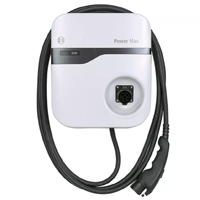Electric Vehicle Offers & Information
Delaware Clean Vehicle Rebate Program

The Clean Vehicle Rebate Program provides incentives for Delawareans and Delaware businesses to buy or lease new alternative fuel vehicles.
The vehicle rebate program encourages the deployment of electric, natural gas, and propane-powered vehicles as part of Delaware’s commitment to innovation in the transportation sector, reducing greenhouse gases, and improving Delaware’s air quality.
The vehicle rebate program encourages the deployment of electric, natural gas, and propane-powered vehicles as part of Delaware’s commitment to innovation in the transportation sector, reducing greenhouse gases, and improving Delaware’s air quality.
- The Delaware Clean Vehicle Rebate is not a tax credit. It is a cash rebate that must be applied for within 90 days of the vehicle’s purchase.
- Rebates are for vehicles purchased May 1, 2024 or later.
- Be sure to check program website to ensure funding is still available before making a purchase.
Incentive Information
• New Battery Electric Vehicles with a base MSRP below $40,000 *$2,500
• New Battery Electric Vehicles with a base MSRP between $40,000 and $50,000 *$1,500
• New Plug-in Hybrid Vehicles with a base MSRP below $50,000 *$1,000
• Used Battery Electric Vehicle with a fair market purchase price of $40,000 or less *$2,500
• Used Plug-in Hybrid Vehicles with a fair market purchase price $40,000 or less *$1,000
Note: Fair market value as determined by Kelley Blue Book.
*To be eligible for a rebate, the total vehicle price cannot exceed the amounts listed above. The total vehicle price is the final purchase price including added features, equipment and extended warranties. Taxes, tags, rebates, incentives, and trade-ins are not included as part of the total vehicle price.
• New Battery Electric Vehicles with a base MSRP between $40,000 and $50,000 *$1,500
• New Plug-in Hybrid Vehicles with a base MSRP below $50,000 *$1,000
• Used Battery Electric Vehicle with a fair market purchase price of $40,000 or less *$2,500
• Used Plug-in Hybrid Vehicles with a fair market purchase price $40,000 or less *$1,000
Note: Fair market value as determined by Kelley Blue Book.
*To be eligible for a rebate, the total vehicle price cannot exceed the amounts listed above. The total vehicle price is the final purchase price including added features, equipment and extended warranties. Taxes, tags, rebates, incentives, and trade-ins are not included as part of the total vehicle price.
Federal Tax Credit for New & Used Electric Vehicles

A federal tax credit is available for new and used electric vehicles that meet requirements specified in Internal Revenue Code Section 30D.
New Vehicle Clean Credit up to $7,500.
You may qualify for a credit up to $7,500 if you buy a new, qualified plug-in EV between 2023 to 2032. Under certain conditions between a dealership and a seller, "leasing" a vehicle may allow the purchase to be treated as a "commercial vehicle," thus making it eligible for the full tax credit without satisfying some of the strict program eligibility requirements. Be sure to inquire with the dealership and a tax professional when researching purchase options.
Used Vehicle Clean Credit up to $4,000.
Beginning January 1, 2023, if you buy a qualified used electric vehicle (EV) from a licensed dealer for $25,000 or less, you may be eligible for a used clean vehicle tax credit. The credit equals 30% of the sale price up to a maximum credit of $4,000. Additional Details.
The credit is nonrefundable, so you can't get back more on the credit than you owe in taxes. You can't apply any excess credit to future tax years.
Starting in January 2024, an Inflation Reduction Act provision allows consumers to transfer the tax credit to car dealers, reducing the purchase price of eligible new and used vehicles at the time of sale.
New Vehicle Clean Credit up to $7,500.
You may qualify for a credit up to $7,500 if you buy a new, qualified plug-in EV between 2023 to 2032. Under certain conditions between a dealership and a seller, "leasing" a vehicle may allow the purchase to be treated as a "commercial vehicle," thus making it eligible for the full tax credit without satisfying some of the strict program eligibility requirements. Be sure to inquire with the dealership and a tax professional when researching purchase options.
Used Vehicle Clean Credit up to $4,000.
Beginning January 1, 2023, if you buy a qualified used electric vehicle (EV) from a licensed dealer for $25,000 or less, you may be eligible for a used clean vehicle tax credit. The credit equals 30% of the sale price up to a maximum credit of $4,000. Additional Details.
The credit is nonrefundable, so you can't get back more on the credit than you owe in taxes. You can't apply any excess credit to future tax years.
Starting in January 2024, an Inflation Reduction Act provision allows consumers to transfer the tax credit to car dealers, reducing the purchase price of eligible new and used vehicles at the time of sale.
- Consult your tax adviser to make sure you qualify
- Tax credit amount varies based on vehicle details
- Restrictions apply, subject to change without notice
Incentive Information
Electric Vehicle Federal Tax Incentive up to $7,500
Federal Tax Credit for Electric Vehicle Charging Equipment up to $1,000

If you install qualified vehicle refueling and recharging property at your home, including electric vehicle charging equipment, you may be eligible for a credit of up to $1,000 for each item of property.
- Consult a tax professional to see if your installation qualifies
- Visit IRS website for additional information
Incentive Information
Federal Tax Credit up to $1,000 for residential charging equipment
Consider Installing a Level 2 (240V) Electric Vehicle Charger

Level 2 electric vehicle supply equipment (EVSE) provides charging through a 240 V AC plug. Level 2 adds about 10 to 60 miles of range to a vehicle per hour of charging time, making it far more convenient than standard 120 V AC charging, which adds about 2 to 5 miles per hour of charging. Additionally, level 2 charging is a more energy-efficient method of charging, as most EV have on-board components that require additional electricity the entire time the EV is plugged in.
- Level 2 chargers are four to six times faster than using a standard home outlet.
- More efficient charging than standard outlet (120V) charging.
- Many units come with additional controls, such as timers and wifi connectivity.

